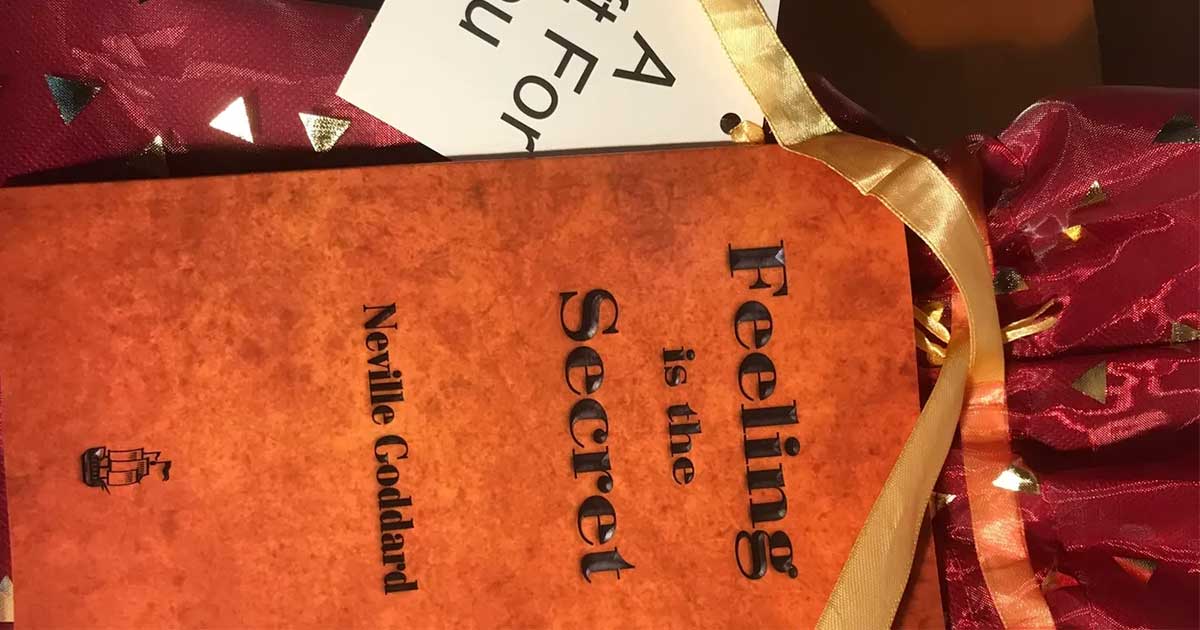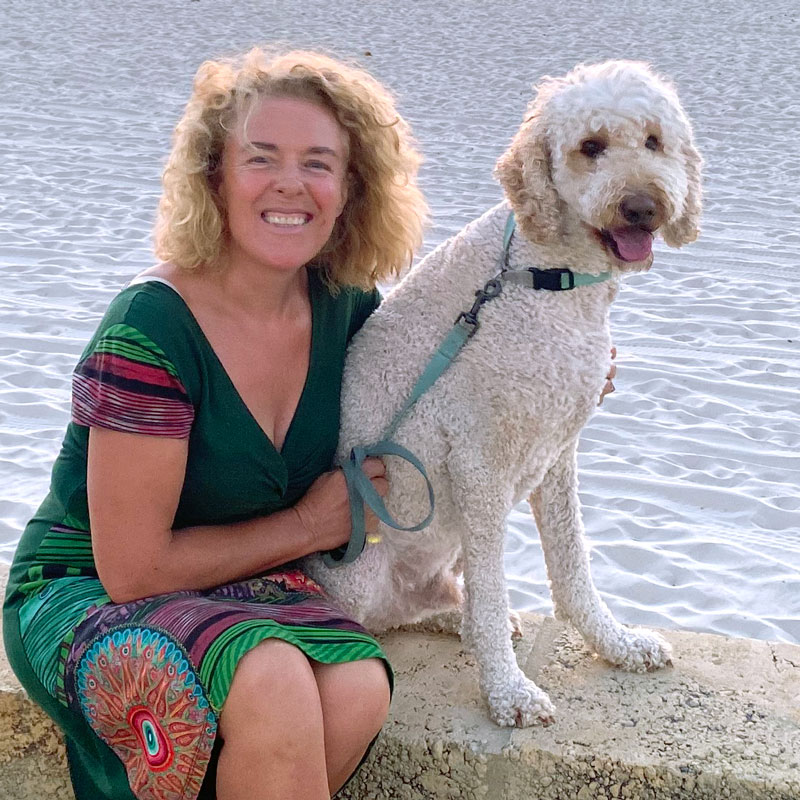Since last week’s piece about Apathy, I have received some interesting feedback from you, letting me know that some of you are beginning to realise the benefits of better understanding the self. In our busy lives, with much to distract us, we don’t always make time for self-reflection. It may even be the case that self-reflection is seen as self-indulgent and considered to be almost selfish. I certainly don’t subscribe to this way of thinking. I know that my life, and the life of those I live with, is changing for the better because I am curious about my thoughts and the feelings that come from those thoughts. It can also be that, for some people, the idea of going inside is scary. Feelings can be too painful to bear for some and so it is safer to keep them at bay, either by living a super busy life and avoiding all opportunity to be in touch with the inner self, or by numbing the feelings through substance-abuse, comfort eating, shopping, sex or other compulsive behaviours.
Letting go of shame
Last week I put a post on my Facebook page about how it feels to have reached yet another milestone in my sobriety. I wrote that in the past 15 months I have learnt to let go of the shame that kept me stuck in a self-destructive cycle for decades. That same day I received a special gift in the post from a beautiful niece of mine. It was a book written by American author, Neville Goddard who lived from 1905 until 1972. I had never heard of him but his book ‘Feeling is the Secret’ leapt out at me and filled me with intrigue. More about that later. For now, though, suffice to say that it was a serendipitous moment in which I felt a strong connection with my niece’s positive energy and a deep sense of gratitude for her reaching out to me. It’s all part of the letting go process that allows me to move forward with hope for a brighter future.
The shamed thief
This week I am going back to Shame. I know I’ve already covered it in one of my earlier blogs, but it’s a subject that doesn’t go away and will always be there to remind us of how unworthy we can feel if we’re not mindful. I have called upon the wonderful Dr Brené Brown for inspiration on many occasions and I never tire of her talks. If you’re not already familiar with her TedTalk, then I strongly recommend you watch The Power of Vulnerability. It is one of the most viewed talks of all time and for very good reason too. Brené has spent over 20 years researching this topic and she manages to shine a bright light on what she describes as one of the most primitive human emotions, shame, and how it is intricately linked to our desperate need for connection. I totally agree with her view that shame kills empathy, the foundation of love and justice which is why I feel the need to continue talking about it. We all have it, some more than others. Much of it originates from what we were told and subsequently told ourselves when we were kids. It is not to be confused with guilt as this can have a positive angle to it. So, let’s look at the difference between these two things by way of an example from my childhood. A memory that has never left me is one that caused me great pain when I was just seven years old. I had taken a pencil belonging to one of the other kids in my class and hid it in my boot (yes, rubber boots were an acceptable part of school attire back in those days!) but I was caught red-handed. In front of the entire class, the teacher called me up and told me that I was a thief. I felt the shame burrow its way deep inside me and with it a sense of rejection and a belief that I was no longer worthy. From that day on, I believed I was a thief and proved many times over that the teacher was right. Because I was told by a figure of authority that I was a thief, I took it as fact and for a long time afterwards was unable to see that I could be anything different. Thieving became something I did in order to express my sense of being, and it had a hugely negative impact on my relationship with my parents, siblings and of course, myself. I hated what I believed I was. Imagine how different the outcome would have been had the teacher said instead ‘in stealing that pencil you made a bad choice. This is not acceptable behaviour. You need to think about this, apologise and promise not to do it again.’ There wouldn’t have been so much shame as guilt. And the guilt would more than likely have motivated me not to do it again. Do you see the difference? Shame is ‘I am bad’, guilt is ‘I did something bad’. Being aware of this difference is critical to what comes next. If my son doesn’t get the mark he wants from an exam, I don’t tell him he is stupid, do I? No, I tell him that he should have studied a bit more! I show him that I believe in him so that he believes in himself and give him the tools to make the changes necessary to live a more contented life.
Kill shame with talking
There is a strong link between carrying a lot of shame and substance abuse. When we keep shame hidden deep within, we hold onto the negative beliefs about ourselves that are associated with that shame. It is then that some of us seek to ease the pain of that shame and the feelings of rejection that go with it . Every human being is wired for social connection and anything that threatens it is likely to cause us great pain. Hence, we try very hard to fit in, worrying about our appearance, obsessing with body image, following trends, going with the flow even if it goes against our own true values. The way to conquer shame is to talk about it, acknowledging that none of us is perfect and that everybody experiences shame at some point or other in their lives. We might all be flawed, but we are all worthy of love, belonging and connection. Nobody has the right to tell you that you don’t belong, and if they do, they are simply seeking to deny their own shame by believing they are better than you. When a person believes they are not enough, they will often try to counter that by putting others down. The only way to truly overcome these beliefs is by facing our own shame and fears. It is actually quite liberating to finally accept that, while I messed up in many ways throughout my life, I am able to forgive myself. In understanding that I am not a bad person or a thief even, I can hold myself accountable for my actions and make better choices. This insight helps me to understand others and what they might be experiencing. This insight into myself has strengthened my ability to empathise.
Feeling is the secret
Which brings me to the book my niece, Lisa, sent me. Feeling is the Secret landed in my mailbox right when I needed it to. If you read my blog last week, you will know that the sub-conscious mind has become an area of great interest for me. There was a time when I lived in fear of it, but I see now that it was out of ignorance more than anything else. Having explored it a bit further, I am relieved to know that we can rewrite the messaging that is currently programmed into our sub-conscious mind. 1n 1944, Neville Goddard wrote about his belief in the power of our imagination to influence how our lives unfold. His book Feeling is the Secret spells out how it’s about connecting the imagination with the heart and catching the feeling as if the imagined thing is real. Neville believed that whatever we desire, we need to visualise and feel it as though we have already achieved it. He said,
Always go to the end, for the end is where you begin, when thinking about what your heart desires.
It’s not as simple as the power of positive thinking. It is about combining the power of our imagination with our ability to conjure a feeling and to feel it. Neville encouraged us to not only go to the end and feel what we want to be at the end, but to dwell in it even though reason and our senses deny it. Let’s take an example: There is a person that I admire a lot and I would love if they would include me in their life. If I follow Neville’s advice, I will imagine that person does like me, I will visualise them inviting me to spend time with them and I will feel those feelings in my heart that I imagine would happen when I am connected with them, enjoying their company. The doubting mind will try to tell me that I can’t have these feelings because that person doesn’t like me, but my power to imagine and feel must over-rule the doubting mind and pave the way for my desires to be fulfilled. I know some people will find this concept a bit too wacky to grasp and I understand that. All I ask is that you keep an open mind and give it a try for yourself. I will leave you with a quote from Albert Einstein this week that kind of substantiates some of this concept:
Imagination is more important than knowledge. For knowledge is limited to all we now know and understand, while imagination embraces the entire world, and all there ever will be to know and understand.
There is so much more to say on this subject but I’m going to have save it for another day. Thanks for being here today.

